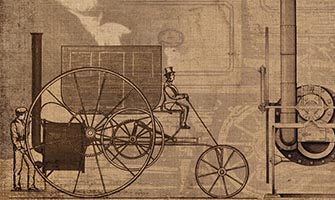Is it Defamatory to Call Someone a Patent Troll?
 Is it defamatory to call someone a patent troll? A state Supreme Court ruling says no.
Is it defamatory to call someone a patent troll? A state Supreme Court ruling says no.
ATL’s Origin Story: A Profitable Failure
In 1990, David Barcelou invented an automated gaming machine that dolled out cash awards. His system never struck gold, but he patented some of the design elements associated with computer-automated payments. He called his patent-holding company ATL.
In 2008, ATL started asserting its patents against banks. Ultimately, the firm generated over $3 million in licensing fees between 2011 and 2012.
Over the years, federal courts began to nullify several of ATL’s patents. Regardless, the company allegedly continued to “assert those patents and sue banks across the country, including banks that do not even have ATMs.”
Banks Fight Back Against Patent Enforcement
Attorney Bob Stier emerged as a central figure in the ATL patent lawsuits because his firm represented several parties accused of intellectual property violations. In a Boston Business Journal interview, Stier explained:
“Automated Transaction’s suit amounts to nothing more than a shakedown of community banks and that the company has intimidated more than 140 banks into settling.” ().
On his firm’s website, a passage read:
“[A]fter more than 100 banks were brought together in 2012 to defend against a patent troll that demanded licenses for their ATMs, that particular patent troll lost its appetite for the patent litigation and abandoned its claims.”
In addition to Stier’s statements and marketing efforts, the Credit Union National Association hosted a presentation about the patent problem. Some materials used at the talk included a cartoon picture of a troll, which the presenter labeled as “well-known [patent] troll,” ATL.
Can You Call Someone a Patent Troll: ATL Says It’s Slanderous
ATL opted to smack its detractors with a legal action, arguing that the term “patent troll” was defamatory. The company also objected to the defendants’ use of the words “shakedown” and “extortion” when discussing ATL.
The lower court judge didn’t agree with ATL and sided with the defendants.
Judge: “Patent Troll” Doesn’t Amount To Defamation
ATL appealed the ruling, and the New Hampshire Supreme Court accepted the case. But like the lower court, the justices ruled that defamation actions can’t be rooted in opinion. In its decision, the court reasoned:
“The challenged statement, that ATL is a well-known patent troll, is one of opinion rather than fact,” the New Hampshire Supreme Court wrote about the Credit Union National Association. “The statement is an assertion that, among other things, ATL is a patent troll because its patent-enforcement activity is ‘aggressive.’ This statement cannot be objectively verified.”
Patent Troll Defamation Ruling Will Have Countrywide Ripple Effect
Yes, this is a New Hampshire ruling. But state courts pay attention to what other state courts do. A similar case out of Arizona may use this New Hampshire ruling as precedent.
How to Prove Defamation
Thanks to the First Amendment and our valued tradition of free speech, the United States has the most defendant-friendly defamation laws in the world. To win, plaintiffs must prove the accused:
- Made a false statement of fact about the claimant
- To more than one person
- Which directly resulted in material harm for the claimant, and that
- The defendant understood the falsity of their statement but said it anyway.
In this case, the courts decided that calling someone a patent troll amounts to an opinion, not a false statement of fact. However, situational details matter. If you’re unsure about the defamatory nature of a comment, consult a slander and libel lawyer.
Are you interested in learning more about defamation law in Arizona? Head here for a breakdown of Arizona defamation laws for non-lawyers.





